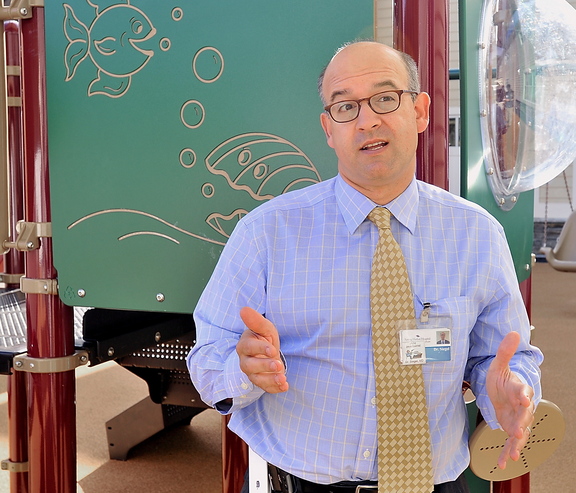WESTBROOK — Dr. Matthew Siegel is on a mission to unlock the secrets of autism in children.
“There’s this big gap in the scientific research,” said Siegel, of MaineHealth’s Spring Harbor Hospital in Westbrook. “What the differences are between an autistic child with a high IQ who has communication skills and a kid who doesn’t speak at all and has problems with basic functioning, we don’t know.”
But Siegel and a team of researchers have received a two-year, $1.2 million grant to study cases of severe autism. The grant is from the Simons Foundation and the NLM Family Foundation.
Siegel said the grant, which has already been used to create five research-related jobs in Maine, could attract more autism research money if the results in the first two years are promising. The research has the potential to develop more effective treatments for autism, Siegel said.
Spring Harbor and Maine Medical Center Research Institute in Scarborough will direct the research, which will also be conducted at hospitals in Rhode Island, New Hampshire, Baltimore, Colorado and Pittsburgh. In all, about 500 to 1,000 children will be studied and tracked for at least two years, or longer if researchers receive more grant money.
“Maine will be at the center of this national research, when usually names like Yale, Brown and Duke (universities) come up,” Siegel said. “I think it’s remarkable that we can be a part of that.”
Siegel, director of the developmental disorders program at Spring Harbor, said the severity of the autism cases admitted at Spring Harbor provided the inspiration to apply for the research grant.
He said children admitted for 30-day or longer stays at Spring Harbor – often because they’ve become aggressive or were trying to hurt themselves – are typically the most severe autism cases. Siegel said there has been relatively little research on low-functioning autistic children, and that inspired him to apply for the grant.
“I’m so hopeful that with this research we can help the kids who need the most help, the children that we understand the least,” Siegel said.
Siegel said participants in the study will have blood drawn for genetic analysis. Also, researchers will administer intelligence tests, study the children’s behaviors, and their ability to regulate emotions and communicate.
“What we are trying to determine is whether we can define subgroups within the autism spectrum,” Siegel said.
He said the research could eventually lead to more effective medicine- and behavior-based treatments, and the genetic research could help doctors determine causes of autism.
Any practical improvements for families affected by autism would be welcome, said Cathy Dionne of Greene, who heads the Autism Society of Maine, a nonprofit advocacy and support group.
Dionne, whose 19-year-old son, Benjamin, is autistic and does not speak, said that even though Maine has more resources for children with autism than many other states, it’s still a struggle. She said the research money coming to Maine is good news, and hopefully it can spur more improvements to the system.
“It’s daunting what families have to go through,” Dionne said. “There’s not enough support for families.”
Dionne said although Siegel’s research will focus on children, they eventually grow up and anything that can be done to help them lead better lives will be much appreciated.
She said that her son, even though he has difficulty communicating, will likely land an agricultural job and live as independently as possible.
Siegel, 41, of Yarmouth, said the goal is to one day be able to diagnose and prescribe treatments that work.
“My dream is we would play a role in reaching that point,” Siegel said.
Joe Lawlor can be contacted at 791-6376 or at:
jlawlor@pressherald.com
Twitter: @joelawlorph
Send questions/comments to the editors.




Success. Please wait for the page to reload. If the page does not reload within 5 seconds, please refresh the page.
Enter your email and password to access comments.
Hi, to comment on stories you must . This profile is in addition to your subscription and website login.
Already have a commenting profile? .
Invalid username/password.
Please check your email to confirm and complete your registration.
Only subscribers are eligible to post comments. Please subscribe or login first for digital access. Here’s why.
Use the form below to reset your password. When you've submitted your account email, we will send an email with a reset code.